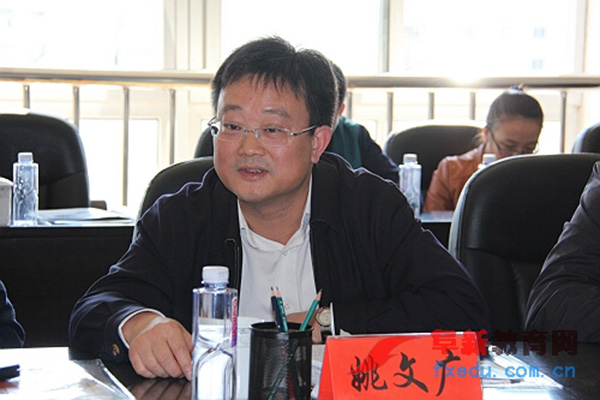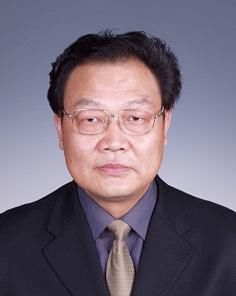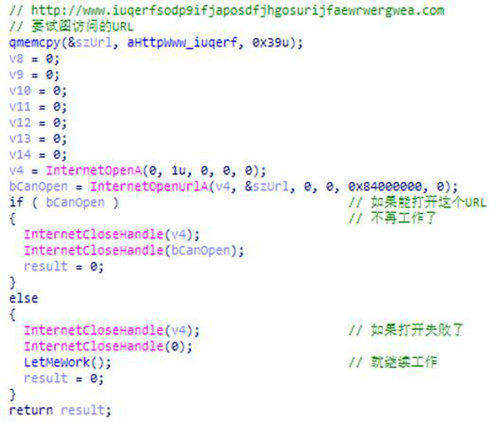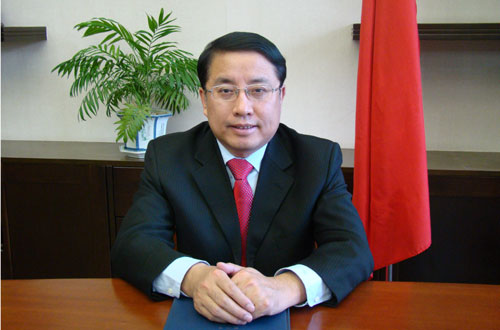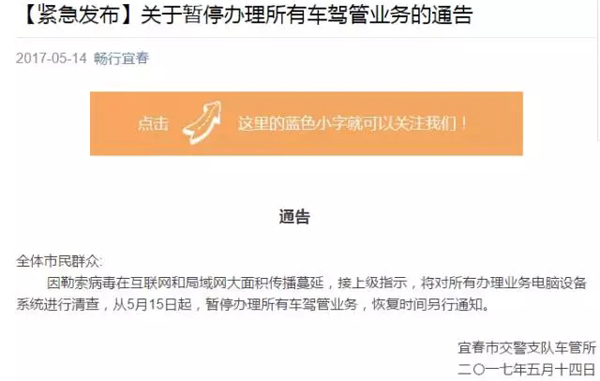Taiwan high-speed rail overseas network map Taiwan high-speed rail happened for the first time in 10 years when the train ran wrong track. Taiwan high-speed Railway Co., Ltd. said on May 13 that the main reason was that the controller did not set the return distance, and there were no passengers on the 10th, operation safety is not affected. According to Taiwan’s “Central News Agency”, on the afternoon of the 10th, a high-speed rail returned to Zuoying station after testing the train without carrying passengers. However, the controller of Tainan Station did not complete the setting, resulting in the switch not setting the path correctly, the train went directly north to Tainan, and stopped after exceeding the switch for about 1 kilometer. Taiwan high-speed rail said that the first track accident in 10 years was indeed a human negligence. At that time, there were no passengers on the train, which did not affect the operation safety. Moreover, during the process of high-speed rail train traveling, under the strict protection of train automatic control system (ATC), there is no possibility of accidents. According to the preliminary investigation of Taiwan’s high-speed rail, this incident was the case that the controller did not set the route of returning the vehicle, and there was no “control of the derailment, and there was no danger in driving other track risks. Immediately after the incident, the relevant supervisor received the notification and recorded it in the “operation control center service log” for reference, without deliberately hiding it. The high-speed rail company said that although this incident did not affect the operation of the high-speed rail, it involved the negligence of personnel operations. It has been investigated according to internal procedures and reported to review the improvement plan to avoid the recurrence of similar incidents. Taiwan high-speed rail overseas network map Taiwan high-speed rail happened for the first time in 10 years when the train ran wrong. Taiwan high-speed Railway Co., Ltd. said on May 13 that the main reason was that the controller did not set the return distance, and there were no passengers on the 10th, not affected camp
Category: 上海419论坛
Yao Wenguang served as deputy director of the Yellow River Water Conservancy Committee of the Ministry of Water Resources and member of the Party group.
According to the introduction of the “Yellow River Commission leadership” column on the official website of the Yellow River Water Conservancy Commission of the Ministry of Water Resources, Yao Wenguang has served as the deputy director of the Yellow River Commission and a member of the Party group. Data Map of Yao Wenguang Fuxin Education NetworkResume of Yao Wenguang Yao Wenguang, male, Han nationality, born in February, 1969, from Zhoushan, Zhejiang province, joined the Communist Party of China in March, 1991and joined the work in July, 1991. Graduated from North China Electric Power University with master degree in environmental engineering and senior engineer. From September 1987 to July 1991, I majored in water conservancy and hydropower construction engineering in Hehai University. He took part in the work in the river dispatching department of the National Defense office in July, 1991and successively served as the section member and deputy director section member. From January, 1997to November, 1999, he served as the deputy director section member and director section member of the General Office of the Ministry of Water Resources. From November 1999 to May 2011, he served as the deputy secretary of the General Office of the Ministry of Water Resources, the deputy director of the river dispatching department of the state defense office, the deputy director of the Taihu Lake department of the Yellow River, the deputy director of the disaster reduction department, and the director of the disaster reduction department. In May 2011, he served as the National Defense office flood control and drought relief Ombudsperson (deputy division level), and in August 2012, he served as the deputy director of the National Defense Office. During this period, he was suspended from March 2012 to October 2012 as the petition Ombudsperson of the national petition bureau, from December, 2013 to December, 2015, he was appointed as a member, member of the Standing Committee and deputy mayor of the municipal party committee of Fuxin City, Liaoning province. From March, 2016 to January, 2017, he studied in the training course for young and middle-aged cadres of the Central Party School. In March, 2017, he served as deputy director of yellow Committee and member of Party group. (Source: Website of Yellow River Water Conservancy Commission of Ministry of Water Resources) According to the introduction of the “Yellow River Commission leadership” column on the official website of the Yellow River Water Conservancy Commission of the Ministry of Water Resources, Yao Wenguang has served as the deputy director of the Yellow River Commission and a member of the Party group. Yao Wenguang Fuxin education network information map Yao Wenguang resume Yao Wenguang, male, Han nationality, born in February, 1969, Zhoushan, Zhejiang province
Chen Xingui, deputy director of Henan environmental protection department, was reviewed for serious disciplinary violations.
According to the news of Henan Provincial Commission for Discipline Inspection: With the approval of Henan Provincial Party Committee, Chen Xingui (Deputy Department level), a member of the Party group and deputy director of Henan provincial environmental protection department, is suspected of serious disciplinary violations and is currently under organizational review. (Henan Provincial Commission for Discipline Inspection) Resume of Chen Xingui From August 1975 to September 1979, workers of machinery factory in Leiyang County. From September 1979 to July 1981, Yunyang Normal School studied. From July 1981 to May 1982, he served as a cadre of Xingyang county education bureau. From May 1982 to June 1984, the office officer of the county Party committee of Leiyang County. From June 1984 to July 1986, he served as a member of the Party committee of Beiyi Township, Xingyang county. From June, 1984 to July, 1986, he Nan Radio and Television University specialized subjects for Party and government cadres. From July 1986 to July 1987, he served as deputy secretary of Party Committee of Xingyang county Wangcun township. From July 1987 to February 1988, he served as deputy director of Xingyang county Party committee office. From February, 1988 to November, 1989, he served as the secretary of the Party committee of Xiwo township, Xingyang county. From November 1989 to May 1994, he served as Standing Committee member and office director of Xingyang county Party committee of the Communist Party of China. From May 1994 to November 1994, he served as the standing committee and office director of Xingyang Municipal Committee of the Communist Party of China. From November 1994 to March 1997, he served as deputy secretary of the CPC Xinmi Municipal Committee. From March 1997 to July 1999, he served as deputy secretary of the CPC Xinmi Municipal Committee and mayor of the municipal people’s government. From July 1999 to June 2003, he served as secretary of the CPC Xinmi Municipal Committee. From June, 2003 to February, 2009, he served as deputy director of Henan Provincial Environmental Protection Bureau and member of the Party group. From February 2009 to now, he served as a member of the Party group and deputy director of the Environmental Protection Department of Henan province. 1011 according to the news of Henan Provincial Commission for Discipline Inspection: With the approval of Henan Provincial Party Committee, Chen Xingui (Deputy Department level), the party member and deputy director of Henan provincial environmental protection department, is suspected of serious disciplinary violations and is currently under organizational review. (Henan Provincial Commission for Discipline Inspection) resume of Chen Xingui from August, 1975 to 19
The inside story is amazing enough that the blackmail virus has not ended yet.
The outbreak of ransomware WannaCry (Eternal Blue) around the world is probably the most influential public security event these days. Since last Friday night, news of the outbreak of ransomware has spread among students from one of the Friends of chivalrous Island. At that time, the virus infection was mostly within the range of campus network. As the graduation season was approaching, many laboratories and students’ graduation designs and papers were severely affected. Over the past weekend, many friends of Uncle Dao were pulled back to the company or unit to work overtime and patch them to prevent large-scale infection caused by the “startup tide” on Monday workdays. In spite of this, today, in the news report, we still saw the news that many domestic universities, gas stations, railway stations, self-service terminals, hospitals, government-run terminals and so on were infected by this virus. Event I believe you have read many articles about the outbreak principle of the virus these days. In short, this worm ransomware attacks users by targeting a vulnerability in Windows, and implements high-intensity encryption of documents and pictures in the computer, and ask the user for the ransom paid in bitcoin. Otherwise, after seven days, the data cannot be recovered even if the ransom is paid. The encryption method is very complex, and each computer has different encryption serial numbers. With the current technical means, decryption is almost “helpless”. In today’s global network interconnection, the victims are certainly not limited to China. According to statistics from the 360 Threat Intelligence Center, after the outbreak on the 12th, more than 100000 organizations and institutions in nearly 100 countries around the world were captured, including 1600 American organizations and 11200 Russian organizations, more than 29000 IP addresses are infected in China. In Spain, the network systems of many companies including telecom giant Telefonica and power company Iberdrola, energy supplier Gas Natural were paralyzed; Portugal Telecom, American transportation giant FedEx, a local government in Sweden, russia’s second largest mobile telecom carrier Megafon have been exposed to attacks. According to Europol, the attack has affected 150 countries and regions. As the virus version is updated and iterated, the specific number may increase. Then, the question arises: Who did this?! Black Hand There is no answer. In the words of Zheng Wenbin, the head of 360 core security team, the traceability of ransomware has always been a difficult problem. The FBI once offered a reward of 3 million dollars to find the author of the ransomware, but there was no result. At present, there is no country in the world where the author of the ransomware comes from. However, from the perspective of blackmail, ransomware prompts in 15 languages including Chinese will appear after the computer is infected with the virus, and the whole payment will be carried out in such a very difficult way as Bitcoin and anonymous network, it is likely to be the organizational behavior under the Black industry chain. Ransomware is a new virus model that began to appear in 2013. Since 2016, the virus has entered the outbreak period. Up to now, more than 100 ransomware have benefited from this behavior. For example, last year, a variant of the CryptoWall virus family received 2.3 billion ransom. In recent years, different types of ransomware have also appeared in Apple computers, Android and iPhone phones. Although the underhand cannot be found at present, the tools it uses clearly point to an organization-NSA(National Security Agency), the US National Security Agency. This organization, also known as State secrets bureau, is affiliated to the U.S. Department of Defense and is the largest intelligence department among U.S. government agencies, specializing in collecting and analyzing foreign and domestic communication data. The eternal blue used by hackers is the network weapon developed by NSA against Microsoft MS17-010 vulnerabilities. Here’s the thing: the NSA itself has a large number of well-developed cyber weapons in its hands, but in June, 2013, more than a dozen weapons such as “Eternal Blue” were stolen by the hacker organization “Shadow Broker” (ShadowBreakers). In March this year, Microsoft released patches for this vulnerability, but first, some users did not have the habit of patching in time, second, many users around the world are still using earlier versions such as WindowsXP, which have stopped updating services, and cannot obtain patches, thus causing widespread spread around the world. With the feature of “worm” constantly scanning, it is easy to repeatedly infect the Internet and the intranet of campus, enterprise and government agencies. Another question came: Why Did NSA know Microsoft’s vulnerabilities and made special cyber weapons, and then some of these weapons fell into the hands of hackers? NSA Realistically speaking, as one of the operating systems, Windows is composed of hundreds of millions of lines of code. The logical relationship between them cannot be decided by one person, so it is difficult to eliminate vulnerabilities. Windows is the most commonly used operating system in the world, so it is normal for hackers to study vulnerabilities and attack them for profit. But as the National Security Agency of the United States, it is just to stare at the loopholes in this system, and it also specializes in weapons. What is the reason? In fact, Microsoft did not know the vulnerability existed until the hacker organization exposed it. In other words, only the NSA knows that the vulnerability exists, and only they know how long it has been known. In the opinion of cyber security experts on chivalrous island, it is very likely that NSA has known this vulnerability for a long time and exploited it, but this time it was used by the criminal team, that causes such great harm. From this point, we can see that the technology of the United States is really strong, and it is a unique global in the field of network security. At the same time, “vulnerability” has become a valuable strategic resource that soldiers must fight. In other words, attacking the reality through the network is no longer the scene patent of science fiction movies, but the reality that has happened. If you don’t believe me, tell you a true story– Snowden, the one who disclosed the “prism plan” that the US government monitored the world, was a former employee of the NSA. He confirmed that in 1999, the Obama administration ordered the use of cyber attack weapons-a virus codenamed “Zhenzhen network” to attack Iran’s nuclear facilities. The reason is complicated. In short, Israel managed to purchase centrifuge control software with a virus in Iran through Malaysian software companies. In 2010, the virus broke out, the centrifuges that controlled and destroyed Iran’s nuclear facilities, such as that, eventually caused permanent physical damage to more than 1,000 centrifuges and had to suspend the process of enriching uranium. This is also the first case of attacking and destroying the real world through virtual space in history, which has achieved the effect that only through military operations on the ground in the past. Last year, Ukraine’s power grid system was also attacked by hackers, resulting in power supply interruption for hundreds of households. How many cyber weapons does the NSA hold now? Of course, it is the secret of the United States. But according to WikiLeaks, not only does the NSA have it, but the CIA also has it, their network intelligence center has created more than 1,000 kinds of computer viruses and hacker systems-the number confirmed by Snowden in 2013. Therefore, after the outbreak of the “Eternal Blue”, the report of the New York Times said, “if it is confirmed that this incident was caused by cyber weapons leaked by the National Security Bureau (NSA), the government should be blamed because the U.S. government makes many hospitals, enterprises and other governments vulnerable to infection”. According to the NSA, its duty should be to “protect American citizens from attacks”; They have also accused many countries of carrying out cyber attacks on the United States. But the fact is just the opposite. The countries they blame are all victims of this virus. The cyber weapons they use to “defend” become the weapons used by hackers to attack American citizens. In the words of the national public broadcasting station, “This attack pointed out a fundamental problem in the security field, that is, the monitoring of the National Security Bureau is protecting the people or creating more irreversible damage, even exceeding its benefits”. Alert Of course, the NSA should reflect, although they have not yet come out to respond. But what is more worthy of reflection is an essential topic: Who is the master of network security? As far as this time, the decision-making process within the U.S. government is more worthy of criticism. There is a Process called VEP(Vulnerability Equity Process) inside, which is used to follow this Process when NSA or other U.S. government departments find a software Vulnerability, decide whether to expose the vulnerability. If the vulnerability is disclosed, Microsoft and other manufacturers can easily create patches, and the vulnerability disappears; If the vulnerability is not disclosed, these government departments can keep it for their own use for “law enforcement, intelligence collection or other aggressive use”. Although this process created by the Obama administration is neither a law nor a presidential decree, it has been implemented since 2008. In the eyes of people in other countries outside the United States, this process is obviously problematic: this process, which can almost be called “black box, the network security risks of the whole world are all determined by the internal mechanisms of the United States, and others are exposed to the risks without any doubt. In response, Microsoft President Brad Smith also said angrily on his blog, “If these government departments continue to hide in the dark and dig for loopholes in global computer systems, then make the so-called Arsenal to attack other countries or buy and sell, then you are the accomplices of cyber crime!” In this sense, Xi Jinping has said many times that “there is no national security without network security”, which is absolutely targeted. Just imagine, this virus is still within the controllable range. What if the next network attack is larger and the target is clearer? From the perspective of China, in most people’s impression, the last outbreak of the virus of this scale probably dates back to the “panda burning incense” more than a decade ago “. However, like this virus, it is rare to face the serious situation of “kidnapping” of important information once the trick is almost unsolvable. From the reaction of different places, the emphasis on network security is obviously different. The National Network Information Department, as well as Shanghai, Beijing and other provinces and cities, issued emergency notices almost on the 13th; The infection that occurred on the morning of the 15th was more in the central and western provinces. Some industry experts also pointed out that, for example, government, enterprises and institutions, campus and other institutions, many leaders still keep the concept of network security at the point of “Finding people to kill and kill viruses if computers are poisoned, many people also think that” physical isolation with intranet is fine “, and the concepts and protective measures are quite lagging behind. Things haven’t ended yet, and there are enough problems and shocks. This is like a public health event. It is the usual emphasis on safety and the degree of organization, which determines the extent to which the plague can spread. I have to say, this is a very vivid and profound network security education course. After all, today our personal information, assets, data, etc. have been increasingly connected with computers and networks, but this process is irreversible. The outbreak of the 5554 ransomware “WannaCry” (Eternal Blue) worldwide is probably the most influential public security event these days. Since last Friday night, the blackmail virus broke out in the student group of one of chivalrous island friends.
The WanaCrypt worm ransomware does not have 2.0 variants.
At present, all the news about “WanaCrypt” with 2.0 variants comes from an article called “WannaCry Kill-Switch(ed)? It s Not Over! Foreign news WannaCry 2.0 Ransomware Arrives (/wannacry-ransomware-cyber-attack.html) The news mentioned that “CostinRaiu”, the head of global research and analysis of Kaspersky Laboratory, said his team found the existence of variant samples without kill-switch, which is called “WanaCrypt” 2.0 in China. kill-switch here refers to “WanaCrypt when the main module is running, if you can access http://www.iuqerfsodp9ifjaposdfjhgosurijfaewrwergwea.com, it will stop working” This emergency shutdown mechanism-this is the most effective immunization method against the virus at present. After obtaining the message “2.0 variant”, rising analyzed all intercepted WanaCrypt worms and found no variant samples without Kill-switch switch. At 07:40 on May 14, Beijing time, CostinRaiu apologized on his Twitter and admitted the mistake. He said on Twitter: After analyzing all WanaCrypt(Wannacry) worm modules, it was found that kill-switch was included. Currently, no variant version without switch has been found. Therefore, rising security experts said that at present, there is no so-called 2.0 variant. Through the emergency shutdown mechanism of domain names, the spread of WanaCrypt can be effectively suppressed. 1234 currently, all the news about “WanaCrypt” with 2.0 variants comes from an article called “WannaCryKill-Switch(ed)? It sNotOver! Wan
Yellow River defense general manager: the possibility of heavy rain and flood in the middle reaches of the Yellow River this year is relatively high.
The Yellow River defense chief released today (15th). According to the prediction of the Yellow River basin meteorological center, the overall deviation of China’s climate state during the flood season this year, and the precipitation in the Yellow River basin is too much, mainly from June to July, among them, in July, the eastern part of Shaanxi, the Shanxi section and the northern part of Henan in the middle reaches of the Yellow River are more than two to 50% compared with the same period of the year, and the possibility of heavy precipitation is greater. The flood control situation of the Yellow River is relatively severe. Since the flood of magnitude 15300 cubic meters per second occurred in 1982, there has been no flood of magnitude more than 10,000 cubic meters per second in 34 years in the Yellow River. Combining various factors, it is expected that the possibility of rainstorm and flood in the Yellow River this year is relatively high. The Yellow River is a special river in the north of our country. The mountain flood channels in the basin are densely distributed and there are many silt dams. Once local rainstorm and flood occur, geological disasters such as mountain flood, debris flow and dam collapse are easily triggered. In addition, the flood discharge capacity of the upper reaches of the Yellow River is low, some embankment sections cannot reach the fortification standard, some river sections in the middle reaches of the Yellow River are not perfect, and nearly one third of flood shelter facilities in the lower reaches of the Yellow River cannot reach the standard. At present, the Yellow River defense general requires all regions to repair plus-sized water damage projects, strengthen flood monitoring, highlight the supervision and inspection of reservoirs and hydropower stations, eliminate hidden dangers, and ensure the safety of flood season. (CCTV reporter Zhou Wei) 1111 The Yellow River defense chief released today (15th). According to the prediction of the Yellow River basin meteorological center, the overall deviation of China’s climate state during the flood season this year, and the precipitation in the Yellow River basin is too much, mainly from June to July, in July, the middle reaches of the Yellow River, the eastern part of Shaanxi, the Shanxi section and the Henan section
Organization Department of Shanxi provincial Party committee publicity: Liu Zhihong, mayor of Shuozhou city, intends to be secretary of the Municipal Party Committee
The proposed cadres of shanxi provincial party committee are now publicized. Liu Zhihong, currently the deputy secretary and mayor of Shuozhou Municipal Party Committee, intends to be the secretary of the municipal Party committee. Born in january 1960, he was born in jinzhong, shanxi province and graduated from the central party school. He joined the communist party of china in july 1978 and joined the work in december 1976. He once served as the county magistrate and secretary of the county party committee of xiyang county, the standing committee of jinzhong municipal party committee and the minister of propaganda department, the standing committee and vice mayor of jinzhong municipal party committee, and the deputy secretary of jinzhong municipal party committee. In august 2016, he served as the deputy secretary and acting mayor of shuozhou municipal party committee, and in february 2017. Zhu peng, currently deputy secretary of yuncheng municipal party committee (director of the main hall), plans to be named as the candidate for mayor. Born in march, 1968, he was born in xuxi, hubei province with a postgraduate degree. He joined the communist party of china in may, 1988and joined the work in august, 1989. He was the general manager of china software and technology service co., ltd., the deputy director of the provincial economic and information commission (the director of the department), the director of the provincial national defense science and technology office, and the secretary of the provincial national defense science and technology industry party committee. He was appointed as the current post in july 2016. Zhou Fuguo, currently deputy secretary of the Party committee of Luliang College, intends to be secretary of the Party committee of Luliang College. Born in february, 1963, he was born in pinglu, shanxi province with a university degree. He joined the communist party of china in december, 1984 and joined the work in july, 1986. He once served as the director of personnel department of Shanxi University and secretary of discipline inspection committee of Shanxi Agricultural University. He took the present position in December 2015. Xiong jijun, a member of the people’s republic of china, is currently the vice president of north university of china and intends to be the dean of luliang college. Born in August, 1971, he was a native of Xiushui, Hubei province. He has an on-the-job postgraduate degree and joined the work in July, 1993. He was the director of the Department of Electronic Science and Technology of North University of China and the dean of the School of Electronic and Computer Science and Technology. He took the present position in June, 2013. Li Wenhui, currently the provincial commission for discipline inspection in the General Office of the provincial government discipline-team leader, intends to be the inspector of the department. Born in april, 1958, he was born in anyang, henan province with a university degree. He joined the communist party of china in december, 1983 and joined the work in october, 1976. He once served as the minister of the communist youth league party committee, the minister of the ministry of youth engineering, the director of the foreign economic and foreign affairs department of the provincial department of agriculture, the provincial commission for discipline inspection in the provincial department of agriculture discipline-team leader, the provincial department of human resources and social security discipline-team leader, and the provincial department of housing and construction discipline-team leader. He took the present position in november 2015. Guo Zhengyu, currently a member of the party group of the provincial religious affairs bureau (Provincial Ethnic Affairs Commission) and the former discipline-team leader, intends to be the inspector of the department. Born in march, 1958, from pingxiang, hebei province, with an on-the-job postgraduate degree, he joined the communist party of china in february, 1987 and joined the work in february, 1982. He once served as the director of the personnel department and the director of the office of the provincial tourism bureau, and the provincial tourism bureau assistant counsel. In june, 2014, he served as discipline-team leader of the provincial religious affairs bureau (provincial civil affairs commission) and a member of the party group. Wang yun is currently the deputy director of the provincial education department and intends to be the inspector. Born in october 1957, yicheng, shanxi province, with a university degree, joined the communist party of china in october 1976 and joined the work in january 1974. He once served as the deputy director and director of the provincial entrance examination management center, and took the present position in june, 2014. Li Taiping, currently the deputy director of provincial Department of Civil Affairs, intends to be the inspector. Born in March, 1958, Yangcheng, Shanxi province, with a university degree from the Central Party School. He joined the Communist Party of China in July, 1986 and joined the work in June, 1975. He once served as the director of the personnel training department of the political department of the provincial public security department, the deputy inspector of the provincial public security department, the director of the political department, and the deputy director of the department. He served as the current post in january 2013. Wang xiaoli, non-party, is currently the deputy director of the provincial land department, and is proposed to be the inspector. Born in june, 1962, from beijing city, with a university degree, he joined the work in august, 1984. He once served as the director of policies and regulations of the provincial department of geology and mineral resources, the director and chief engineer of the department of mineral development and management of the provincial department of land and resources, and served as the current post in january 2005. Hao Yaoping is currently the deputy director of the provincial housing and construction department and intends to be the inspector. He was born in August, 1958. he was born in Jixian county, Shanxi province and graduated from the Central Party School. He joined the Communist Party of China in February, 1985 and joined the work in March, 1976. He once served as the county magistrate of taigu county, secretary of heshun county party committee, secretary of taigu county party committee, and provincial discipline inspection commission in the provincial construction department discipline-team leader. He took the present position in january, 2014. Chen Mingchang is currently the deputy director of the provincial Department of Agriculture and the deputy director of the provincial Party committee’s agricultural industry office. He is proposed to be an inspector. Born in november 1959, wanrong, shanxi province, with a university degree, joined the communist party of china in november 1995 and joined the work in august 1982. He once served as the director and vice president of the soil fertilizer institute of the provincial academy of agricultural sciences, and took the present position in june 2013. Li yuezhen, female, is currently the full-time vice president (deputy director level) of provincial family planning association, and intends to be the inspector. Born in april, 1958, lingqiu, shanxi province, graduated from the central party school. He joined the communist party of china in january, 1980 and joined the work in december, 1976. He was the director of the policy and regulation department of the provincial family planning commission, the director of the science and technology department, and the provincial family planning commission assistant counsel. In july 2010, he served as his current post. Niu jianming is currently the deputy director of the provincial coal department and intends to be the inspector. Born in october, 1957, he is a native of jixian county, shanxi province. He has an on-the-job university degree. He joined the communist party of china in november, 1976 and joined the work in september, 1980. He once served as the director and deputy director of planning and development department of the provincial coal bureau, and served as the current post in may, 2009. Jing Hongshe, currently the deputy director of the provincial bureau of statistics, intends to be an inspector. Born in may, 1959, yongji, shanxi province, with a university degree, joined the communist party of china in march, 1985, and joined the work in august, 1982. He once served as the director of the forestry, animal husbandry and fishery department of the provincial agricultural adjustment team, the full-time deputy secretary of the party committee of the provincial bureau of statistics, the director of the fixed assets investment department, and the chief statistician of the provincial bureau of statistics. He served as the current post in march, 2014. In zheng-hui liu, he is currently the deputy director of the provincial bureau of cultural relics and intends to be the inspector. Born in january 1960, xinxian county of henan people with a university degree, joined the communist party of china in june 1992 and joined the work in august 1982. He was the director of the Office of the General Office of the provincial government and served as the current post in September 2004. Wang Degui, currently the vice chairman of the Provincial Association for Science and Technology, intends to be the inspector. Born in June, 1958, Zuoyun, Shanxi province, with a college degree, joined the Communist Party of China in December, 1992 and joined the work in March, 1975. He was the minister of the International Department and the Minister of the popularization department of the Provincial Association for Science and Technology, and was appointed as the current post in April 2005. Cao Huibin, a non-partisan, former vice mayor of Datong city, is proposed to be the inspector of the provincial CPPCC Economic Commission. Born in October, 1957, from Dingzhou, Hebei province, with a university degree, joined the work in July, 1976. He once served as deputy chief engineer, President of Design and Research Institute, director of technology center, vice mayor of Changzhi city, and vice mayor of Datong city in March 2012. Ren Yangang, member of Minjin, former deputy mayor of Yangquan city, proposed to be Inspector of Minjin provincial Party committee. Born in October, 1958, Jining, Shandong province, with a university degree, joined the work in January, 1975. He was the chief of correspondence division of yangquan institute of education, the main committee of minjin yangquan city, the vice chairman of yangquan municipal political consultative conference, and the deputy mayor of yangquan city in may 2012. In Yun-Feng Li, he is currently the member of the Standing Committee of Yangquan municipal Party committee and the secretary of the county Party committee of Jixian county, and is proposed to be the deputy secretary of the municipal Party committee. Born in July, 1969, Hongdong, Shanxi province, graduated from the Central Party School. He joined the Communist Party of China in November, 1992 and joined the work in July, 1994. He was the Minister of Youth Department, the minister of rights and interests department, the director of the provincial Youth Work Committee, the Standing Committee of Yangquan municipal committee and the Minister of United Front Work Department. He served as the current post in July, 2016. Liang Kechang, currently standing committee member and secretary general of Changzhi municipal Party committee, intends to serve as deputy secretary of municipal Party committee. Born in april, 1965, pingyao, shanxi province, graduated from the party school of the provincial party committee. He joined the communist party of china in april, 1986 and joined the work in july, 1986. He once served as the director of the Comprehensive Department of the provincial bureau of letters and visits, the director of the inspection office, and the vice chairman of the provincial federation of trade unions. He served as the current post in December 2015. Zhao xinnian is currently the secretary of zezhou county party committee and intends to be the standing committee of the municipal party committee. Born in January 1976, he was born in Tongguan, Shaanxi province with a university degree. He joined the Communist Party of China in April 1996 and joined the work in July 1998. He once served as deputy director of the office
Zhang Jingchuan, a former director-level cadre of Heilongjiang Provincial People’s Congress, was filed for investigation.
A few days ago, under the designated jurisdiction of the People’s Procuratorate of Heilongjiang province, the People’s Procuratorate of Jixi city filed an investigation on Zhang Jingchuan, the former director-level cadre of the Standing Committee of the People’s Congress of Heilongjiang province, and took coercive measures. Case investigation is in progress. Zhang Jingchuan resume: Zhang Jingchuan, male, Han nationality, born in February, 1964, from Qinggang, Heilongjiang province. He joined the work in August 1980 and joined the Communist Party of China in August 1985. Postgraduate degree, master of Industrial Economics in Harbin University of Commerce, senior accountant. He is currently the secretary of Suihua Municipal Party Committee of the Communist Party of China. From August 1980 to June 1989, the finance department and deputy section chief of real estate company of Daqing Petroleum Administration Bureau; From June 1989 to September 1993, the chief of finance department of Daqing Petroleum Administration real estate company; From September 1993 to May 1997, deputy director of Daqing Finance Bureau; From May, 1997 to February, 1998, the deputy director of the finance bureau of Daqing City and the deputy director of the agricultural development office of Daqing City (during the period: from September, 1997 to February, 1998, I studied in the training class of cadres at the prefecture level of the Central Party School); From February 1998 to October 2000, director of Daqing Finance Bureau and secretary of the party group; From October, 2000 to June, 2005, the deputy director of the Department of Finance of Heilongjiang province and members of the party group (from September, 2001 to July, 2003, he studied in the graduate course class of Industrial Economics of Harbin University of Commerce and obtained a master’s degree); From June 2005 to July 2005, deputy secretary of Heihe municipal committee of the Communist Party of China; From July 2005 to August 2005, deputy secretary of Heihe municipal committee of CPC, Party secretary, deputy mayor and acting mayor of municipal government; From August 2005 to January 2008, deputy secretary of Heihe municipal committee of the Communist Party of China, mayor of the municipal government and secretary of the Party Committee; From January 2008 to January 2008, deputy secretary of Mudanjiang municipal committee of CPC, Party secretary of municipal government, deputy mayor and acting mayor; From January 2008 to January 2011, deputy secretary of Mudanjiang municipal committee of the Communist Party of China, mayor of the municipal government and secretary of the Party Committee; From January, 2011 to February, 2011, Secretary of Mudanjiang municipal Party committee and mayor of municipal government; From February, 2011 to March, 2011, the candidate of the Secretary of Mudanjiang municipal committee of the Communist Party of China and the director of the Standing Committee of the Municipal People’s Congress; From March 2011 to March 2015, Secretary of Mudanjiang municipal committee of the Communist Party of China and director of the Standing Committee of the Municipal People’s Congress; March 2015-Secretary of Suihua Municipal Committee of the Communist Party of China Representative of the 11th National People’s Congress, member of the 10th committee of the Communist Party of Heilongjiang province, representative of the 11th People’s Congress of Heilongjiang province (resume Source: China leading cadre database of the Communist Party of China News Network) 1370 A few days ago, under the designated jurisdiction of the People’s Procuratorate of Heilongjiang province, the People’s Procuratorate of Jixi city filed an investigation on Zhang Jingchuan, the former official cadre of the Standing Committee of the People’s Congress of Heilongjiang province, on suspicion of accepting bribes, and took coercive measures. Case investigation is in progress. Zhang Jing
Jiangxi multi-vehicle management office suspended its business on the 15th due to ransomware
Recently, several departments in Jiangxi were affected by the “blackmail virus”, and Jiangxi Network Security Center issued a notice for this. Not only that, “ransomware” also appeared “variants”. Announcement issued by Yichun city. The pictures in this article are all from the WeChat public account of Jiangxi Daily The notice issued by Jiujiang City. Notice issued by Fuzhou city. The notice issued by Yingtan city. Announcement issued by Fengcheng City. Announcement issued by Shanggao county. Up to now, the vehicle management offices in Ganzhou, Yichun, Pingxiang, Fuzhou, Shangrao and Yingtan have all released a message: “According to the instructions of the superior, all computer equipment systems for business processing will be checked, from May 15, all vehicle management services will be suspended and the recovery time will be notified separately.” Staff of Nanchang vehicle management office said that the number selection of citizens this morning was also affected and the repair was completed in the afternoon. The reporter is verifying whether the vehicle management office in other areas of Jiangxi has a similar situation. 1962 recently, several departments in Jiangxi were affected by the “blackmail virus”, and Jiangxi Network Security Center issued a notice for this. Not only that, “ransomware” also appeared “variants”. Announcement issued by Yichun city. The pictures in this article are all from “Jiangxi Daily” WeChat
China will hold the second Belt and Road Forum in 2019
Xinhua News Agency: President Xi Jinping announced on 15th that China will hold the second Belt and Road Forum for International Cooperation in 2019. Xinhua News Agency: President Xi Jinping announced on 15th that China will hold the second Belt and Road Forum for International Cooperation in 2019.

